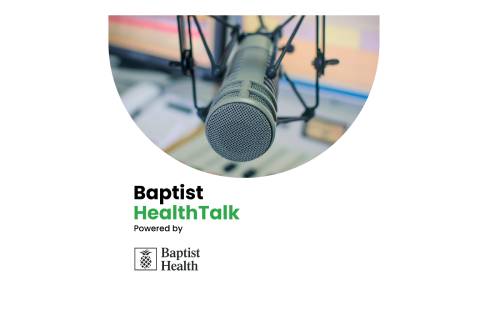
Research
Roundup: These Pregnancy Complications Can Put Child at Risk Later in Life; Most U.S. Adults Don’t Know Their Heart Health Numbers; and More News
4 min. read
Written By: John Fernandez
Published: February 16, 2024
Written By: John Fernandez
Published: February 16, 2024
Study: Pregnancy Complications Could Put Children at Risk for Poor Heart Health by Early Adolescence
Two serious pregnancy complications in women, preeclampsia (persistent high blood pressure) and gestational diabetes, could give their children poor heart health beginning as early as adolescence, new research has found.
Pregnant women were originally enrolled in a study focusing on the relation between blood sugar and pregnancy outcomes. Their children were examined 10 to 14 years after birth, and four cardiovascular-health metrics were evaluated – body mass index (BMI), blood pressure, total cholesterol and glucose (blood sugar).
“Researchers found that more than half (55.5 percent) of the children had at least one cardiovascular-health metric that was non-ideal, which puts them at greater risk of heart disease later in life,” states a news release from researchers who led the study at the Ohio State University Wexner Medical Center and College of Medicine .
Preeclampsia is a type of hypertensive disorder that affects blood flow to the placenta. Most women with preeclampsia will deliver healthy babies and fully recover. However, some women will experience serious health complications during pregnancy.
Gestational diabetes can develop during pregnancy in women who don't already have diabetes. Every year, 2 percent to 10 percent of pregnancies in the U.S. are affected by gestational diabetes, according to the U.S. Centers for Disease Control and Prevention (CDC).
“This presents an opportunity for us to intervene early in childhood and recommend healthy changes for the family to help improve their child’s health later in life,” said lead investigator Kartik Venkatesh, M.D., Ph.D, maternal fetal medicine physician, epidemiologist, assistant professor and director of the Diabetes in Pregnancy Program at Ohio State Wexner Medical Center, in a statement.
The study participants included 3,317 mother-child pairs from 10 health centers. Those with diabetes and high blood pressure prior to pregnancy were excluded from the study. Of the pregnant participants, 14 percent developed gestational diabetes and 10 percent developed high blood pressure during pregnancy.
“There are evidence-based steps that people can take before and during pregnancy to decrease their risk of developing complications,” said the study’s senior author William Grobman, M.D., maternal fetal medicine physician and professor of obstetrics and gynecology at Ohio State. “These include optimizing weight and, among those deemed to be at high risk for hypertensive disorders in pregnancy, taking low-dose aspirin to help reduce the risk of developing high blood pressure.”
Survey: Most U.S. Adults Don’t Know Their Heart Health Numbers: Blood pressure, Cholesterol and Blood Glucose Levels
It’s vital for everyone to know their numbers for ultimate health, particularly blood pressure, cholesterol and blood sugar levels – all of which can be risk factors for heart disease. But a new national survey has found that less than half knew their blood pressure or ideal weight, and fewer than 1 in 5 knew their cholesterol or blood sugar levels.
Researchers at Ohio State University Wexner Medical Center asked more than 1,000 adults nationwide if they knew their blood pressure, ideal weight, cholesterol or blood sugar levels. The highest number (44 percent) knew their ideal weight (body mass index or BMI) and the fewest (15 percent) knew their blood sugar level.
The survey’s more encouraging results found that the majority said they had their blood pressure and heart rate checked within the last year. And most said they had their blood sugar and cholesterol tested within five years.
“Recognizing heart disease risk factors early and adequately treating them can potentially prevent heart attacks, strokes and heart failure,” said Laxmi Mehta, M.D., director of Preventative Cardiology and Women’s Cardiovascular Health at the Ohio State University Wexner Medical Center, in a statement. “As a society, we need to shift from sick care to preventative care so people can live their best and fullest lives possible.”
Coronary artery disease (CAD), more commonly known as heart disease, remains the leading cause of death for men, women, and people of most racial and ethnic groups in the United States. The American Heart Association’s Life’s Essential 8 metrics includes healthy sleep, not smoking, regular physical activity, healthy diet, ideal body weight, and optimal levels of blood glucose, cholesterol and blood pressure.
CDC: Use of More Addictive Menthol Cigarettes Increasing Among Existing Smokers
The percentage of U.S. adults who smoke cigarettes is at an historic low – about 11 percent. But about 30 million Americans still smoke and the use of menthol cigarettes among people who smoke has increased, reports the U.S. Centers for Disease Control and Prevention (CDC) in a new report.
Those who smoke menthol cigarettes “includes groups that already have higher percentages of tobacco use and tobacco-related health problems,” the CDC states.
Tobacco companies add menthol to make their products “seem less harsh and more appealing to people who have never used cigarettes,” the CDC states. “Menthol enhances the effects of nicotine on the brain and can make cigarettes even more addictive.” Moreover, smokers who use menthol cigarettes are less likely to quit the smoking habit, compared to people who smoke non-menthol cigarettes, the health agency adds.
Smoking causes an estimated 480,000 deaths every year, or about 1 in 5 deaths, according to public health officials. It is, by far, the single, largest cause of lung cancer, the deadliest cancer.
The CDC’s Tips From Former Smokers® campaign was renewed this month with new ads to encourage people to quit smoking. This year, seven new people are featured sharing their stories about how smoking and smoking-related diseases have negatively affected their lives. Many of this year’s new ads include messaging about the harms of menthol cigarettes, the CDC states.
Healthcare that Cares
Related Stories
View All Articles
Roundup: Landmark Study Finds Simple Biopsy Accurately Detects Parkinson’s, Other Degenerative Disorders; and More News
March 29, 2024
6 min. read

Roundup: Optimal Heart Health Slows Aging by 6 Years; High Salt Diet Now Linked to Diabetes Risk; and More News
November 10, 2023
5 min. read
